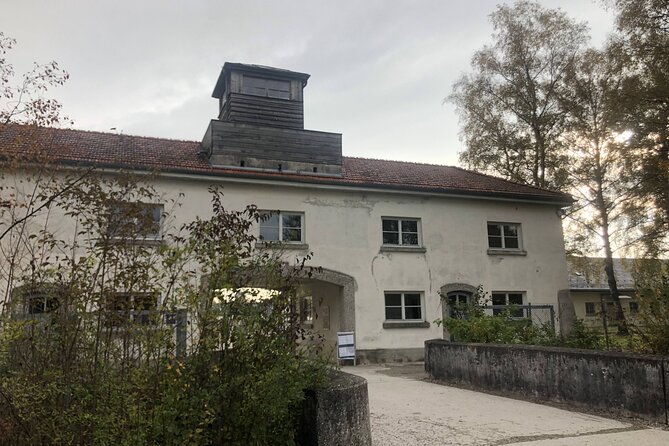Discover the Roots of Nazi Germany
Uncover the intricate origins of Nazi Germany as this article peels back the layers of history to explore the events that led to one of the most tumultuous periods of the 20th century.
From the enigmatic rise of Adolf Hitler to the socio-political landscapes that provided fertile ground for the growth of the Nazi party, this investigation offers a compelling insight into the dark genesis of a regime that shook the world.
Stay tuned to unravel the complexities behind the roots of Nazi Germany and gain a deeper understanding of its profound impact on global history.
Key Points
- National Socialism reshaped German politics with nationalistic fervor
- Harsh Treaty of Versailles fueled extreme sentiments and radical ideologies
- Economic turmoil and unemployment post-WWI exploited for political gain
- Propaganda, indoctrination, and manipulation crucial in establishing Nazi totalitarian regime
Rise of National Socialism
The rise of National Socialism in Germany during the early 20th century fundamentally reshaped the political landscape of the nation. Nationalistic fervor played a significant role in propelling the Nazi Party to power. Adolf Hitler and his followers leveraged this sentiment to garner support, tapping into a deep-seated desire for a return to greatness after the humiliation of World War I.
Hitler’s political strategies were marked by charismatic speeches, mass rallies, and a carefully crafted image that projected strength and determination. By capitalizing on economic hardships and societal discontent, the Nazis were able to exploit the existing political turmoil to advance their agenda. Through a combination of propaganda, intimidation, and manipulation, they gradually consolidated power and established a totalitarian regime.
Treaty of Versailles Impact

Following the devastation of World War I, the Treaty of Versailles profoundly influenced the trajectory of post-war Germany, igniting a cascade of repercussions that would eventually pave the way for the emergence of Nazi Germany.
The Treaty imposed harsh penalties on Germany, leading to widespread resentment and economic hardship. The consequences of the Treaty of Versailles created a fertile ground for political extremism to rise. Extreme nationalist and militaristic sentiments grew, fueled by a sense of injustice and a desire for revenge.
This environment provided fertile soil for radical ideologies like those espoused by the Nazi Party to take root and flourish. The Treaty’s impact on Germany’s political landscape played a pivotal role in shaping the events that would ultimately lead to the rise of Adolf Hitler and the Nazi regime.
Economic Turmoil and Unemployment

Amidst the aftermath of World War I, Germany found itself engulfed in a turbulent sea of economic turmoil and soaring unemployment rates. The Treaty of Versailles had imposed hefty reparations, straining the country’s already fragile economy.
This dire situation paved the way for political manipulation as various factions vied for power, exploiting the widespread discontent to further their agendas. Social unrest simmered as the population grappled with poverty and uncertainty, creating a breeding ground for radical ideologies to take root.
The crippling effects of the economic crisis left many disillusioned with the existing political structures, setting the stage for the rise of extremist movements promising swift solutions to Germany’s woes. This environment of desperation and instability would shape the events leading to the emergence of Nazi Germany.
Propaganda and Indoctrination

In the turbulent landscape of post-World War I Germany, propaganda and indoctrination played pivotal roles in shaping societal beliefs and political allegiance. The manipulation of psychological perceptions and the dissemination of carefully crafted political messaging were instrumental in garnering support for the Nazi party.
Here are three key aspects to consider:
-
Mass Media Influence: Propaganda leveraged newspapers, radio broadcasts, and rallies to spread the Nazi ideology widely.
-
Cult of Personality: Hitler’s charismatic leadership and cult-like following were central to indoctrinating the masses.
-
Education and Youth Programs: The Hitler Youth and educational reforms were used to instill Nazi values in the younger generation, ensuring long-term loyalty.
These strategies highlight the calculated methods employed to sway public opinion and solidify Nazi power.
Persecution and Final Solution

Persecution and the Final Solution during the era of Nazi Germany inflicted unimaginable suffering on millions of individuals targeted by the regime. The Holocaust education and increasing war crimes awareness are crucial in understanding the atrocities committed during this dark period of history. By acknowledging the horrors of the past, society can strive to prevent such atrocities from happening again.
| Emotion | Description |
|---|---|
| Sorrow | Millions of lives needlessly lost |
| Anguish | Families torn apart forever |
| Remembrance | Honoring the victims’ memories |
| Reflection | Learning from the mistakes of history |
Remembering the victims and understanding the depths of human cruelty is essential for promoting peace and tolerance in today’s world.
Common questions

What Were the Key Factors That Contributed to the Rise of National Socialism in Germany?
Key factors contributing to the rise of national socialism in Germany included the impactful use of propaganda, exploiting social unrest. Propaganda shaped public opinion, fostering a climate where extremist ideologies thrived, capitalizing on societal discontent to fuel the movement’s ascent to power.
How Did the Treaty of Versailles Impact the Political and Social Climate in Germany Leading up to the Rise of Nazi Germany?
The Treaty of Versailles heavily impacted Germany’s political and social climate, fostering a sense of humiliation and anger that fueled nationalism. These sentiments, combined with economic hardships, created a fertile ground for the rise of Nazi Germany.
What Specific Economic Challenges and Levels of Unemployment Were Faced by the German Population During the Time of Nazi Germany’s Rise to Power?
During the rise of Nazi Germany, the German population faced severe economic struggles with soaring unemployment rates. The country grappled with widespread poverty and financial instability, contributing to the social unrest that ultimately fueled the Nazi party’s ascent to power.
How Did Nazi Propaganda and Indoctrination Tactics Differ From Previous Forms of Political Messaging?
Nazi propaganda techniques differed from previous messaging through intense psychological manipulation, fostering a cult of personality around Hitler, and achieving mass mobilization. The regime used fear, hate, and misinformation to indoctrinate and control the population.
What Were Some of the Lesser-Known Groups or Individuals Who Were Persecuted by the Nazis During Their Reign, Aside From the Jewish Population?
Persecuted artists, LGBTQ+ individuals faced Nazi oppression beyond the Jewish population. The regime targeted diverse groups for their beliefs, lifestyles. Understanding these lesser-known victims sheds light on the extent of Nazi atrocities and the importance of remembrance.
Last Words

To sum it up, the origins of Nazi Germany reveal a chilling tale of power, propaganda, and persecution.
From the rise of National Socialism to the devastating impact of the Treaty of Versailles, the socio-political climate that fueled the growth of the Nazi party is a stark reminder of the dangers of extremism and intolerance.
By delving into this dark chapter of history, we’re reminded of the importance of vigilance against hate and the enduring impact of past atrocities on our present world.